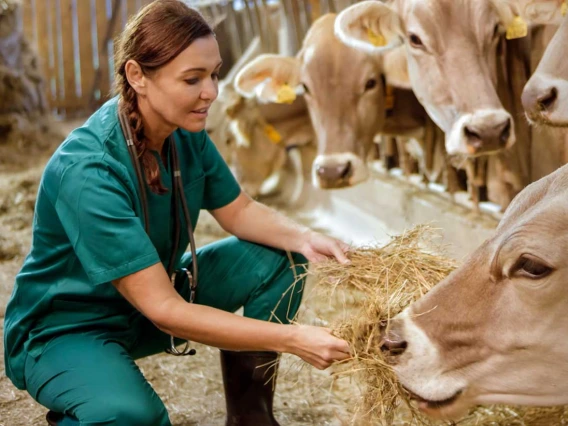Cell and Molecular Biology for Health Careers
Undergraduate Certificate
Quick Facts

Top 1%
of all Higher-Ed
Institutions
- Center for World University Rankings, 2024
#1
In Best Value Among
Arizona's Public Universities
- Payscale, 2024
The Undergraduate Certificate in Cell and Molecular Biology for Health Careers will build a strong foundation in the basic science needed to pursue a career in biomedicine or health care. If you are a non-degree-seeking student or an undergraduate looking to supplement your major coursework with additional courses in molecular biology, cell biology, biochemistry or genetics, this undergraduate certificate may be right for you.
Courses in this program meet the upper-division biology elective requirements for admission to some professional and graduate schools. If you are preparing for professional education including medical, optometry or pharmacy school, the coursework for this certificate will cover many of the required prerequisites.
Knowing which certificate electives fulfill the requirements for specific graduate or professional programs is very important. We strongly encourage you to fill out the Request for Information form at the top of this page to speak with an enrollment counselor that can advise you in the process. We also suggest that you check the policies of specific post-graduate programs you may want to attend to ensure they accept online courses to fulfill their requirements.
*Residents of some U.S. Territories may not be eligible. Please see our Eligibility & State Authorization page for more information.
This 12-credit certificate consists of two required courses (MCB 410 and MCB 411). The elective curriculum for the certificate also includes:
This covers the molecular basis of the structure and function of animal, plant, and prokaryotic cells with emphasis on experimental analysis and health-related applications.
You will learn the mechanisms of genome replication, genetic recombination, DNA repair, gene expression, and regulation with emphasis on experimental analysis and health-related applications.
Learn the fundamentals of metabolism and nucleic acid biochemistry at the cellular and organismal levels, with a focus on key pathways and regulatory mechanisms.
This covers the principles that govern the inheritance of all living organisms including molecular, chromosomal, organismal, population and evolutionary aspects of genetics.
Learn the causes and consequences of evolutionary change in pathogens. Topics include evolutionary principles, vertebrate immunity, molecular epidemiology, the evolution of virulence, the evolution of antimicrobial resistance, and more.
This course is designed to provide upper-division non-physiology majors with a working understanding of the fundamentals of human biological function, elucidating general principles of human physiology, mechanisms of regulation and the normal variations in human biology, while weaving daily-life applications throughout.
Advances in biomedical research will be reviewed and their ethical, social and legal implications discussed.
This course is an introduction to the study of genomics and its relevance to molecular, cellular and organismal biology, human health and disease. This course integrates readings and discussions of current topics and exercises that apply web-based computational tools for genome analysis.
Outcomes
Skills
Earning your Undergraduate Certificate in Cell and Molecular Biology for Health Careers will build core skills, including:
- Analyzing experimental data
- Cellular biology problems in biomedicine
- Communicating science to audiences
- Communication
- Molecular problems in biomedicine
- Problem solving
- Self-directed learning
Potential Career Paths
Graduates of the Undergraduate Certificate in Cell and Molecular Biology for Health Careers program will be prepared to pursue careers in the following fields:











